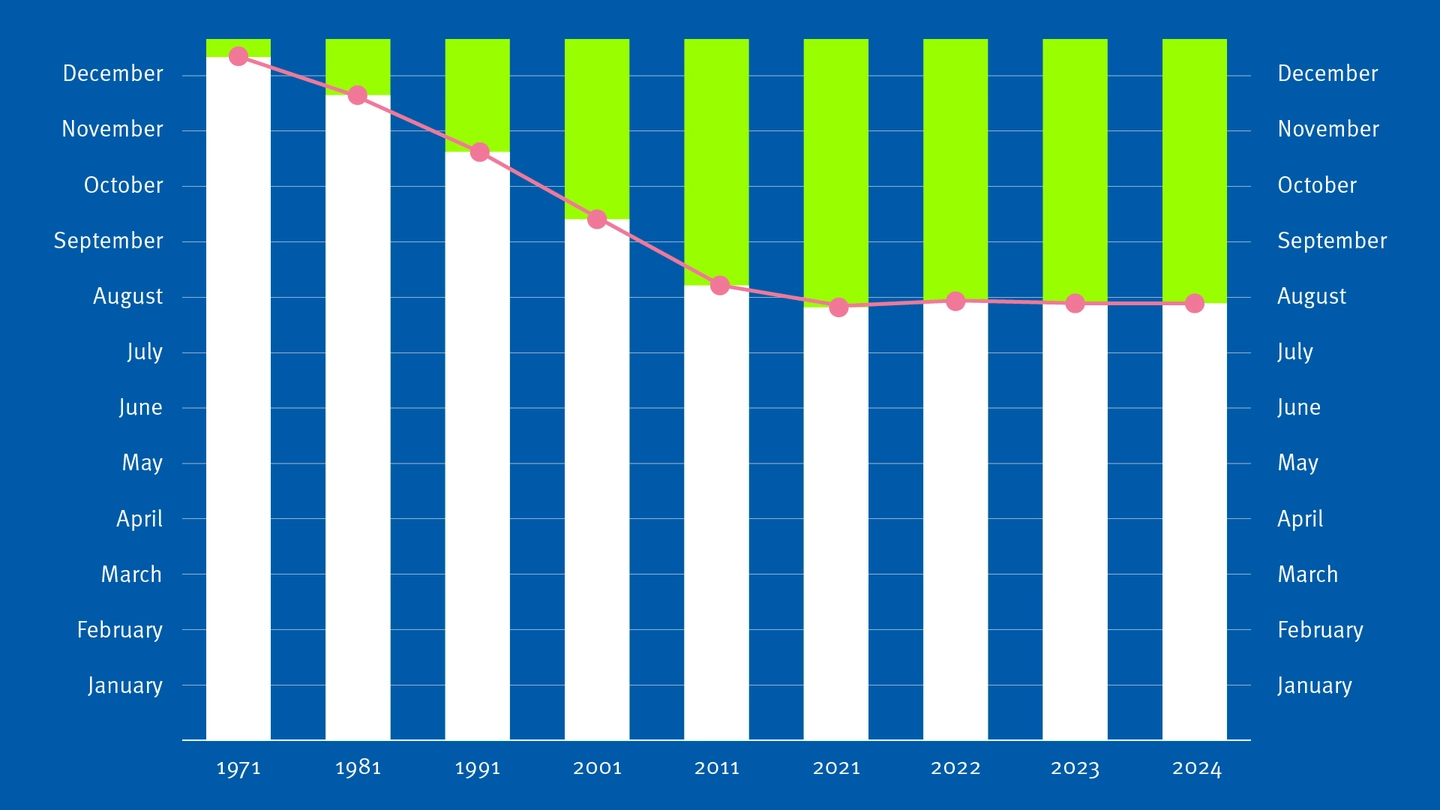Measures to move Earth Overshoot Day back
Under #MovetheDate, you can find initiatives and projects online that aim to significantly delay Earth Overshoot Day. One example is the town hall in Freiburg’s Stühlinger district, which was completed in 2017. It is the first public net-plus-energy building in the world, and Drees & Sommer created the holistic energy concept for it. We have been working on the topic of zero carbon for years and support organizations, companies, municipalities, and cities in their transformation. The European Green Deal and the EU Taxonomy both show that the European Union has also taken measures to ensure we do what we have failed to do in the recent past: live more resource-efficiently overall.
Unsurprisingly, one promising approach is to reduce CO2 emissions. According to Mathis Wackernagel, President of the Global Footprint Network, reducing CO2 emissions from fossil fuels by 50 percent would delay the global Earth Overshoot Day by a whole 93 days. Read the interview with Mathis Wackernagel to find out how Earth Overshoot Day differs in different countries and what solutions we can use to delay Earth Overshoot Day.
Solutions for the construction and building sector
According to the United Nations (UN) Environment Program’s Global Status Report for Buildings and Constructions, the construction and building sector is responsible for around 40 percent of all energy and process-related CO2 emissions worldwide.
Building more resource-efficiently and operating buildings more sustainably is not just a question of responsibility and morality, but also a question of economic efficiency and competitive advantage. Steffen Szeidl, one of Drees & Sommer’s three board members, is convinced that “in the medium to long term, only companies that act sustainably will survive because there is no alternative and because it pays off—provided that all risks are honestly and fully accounted for.”
The President of the Global Footprint Network and developer of the ecological footprint concept, Mathis Wackernagel, also pointed out in his 2021 interview with us that we should not strive to consume as many resources as the earth can regenerate, but actually much less: “After all, there are other species on our planet besides us humans.”
And how can we succeed in making construction more resource-efficient and operating buildings more sustainably? With ideas for the circular economy such as Cradle to Cradle® and other solutions.

